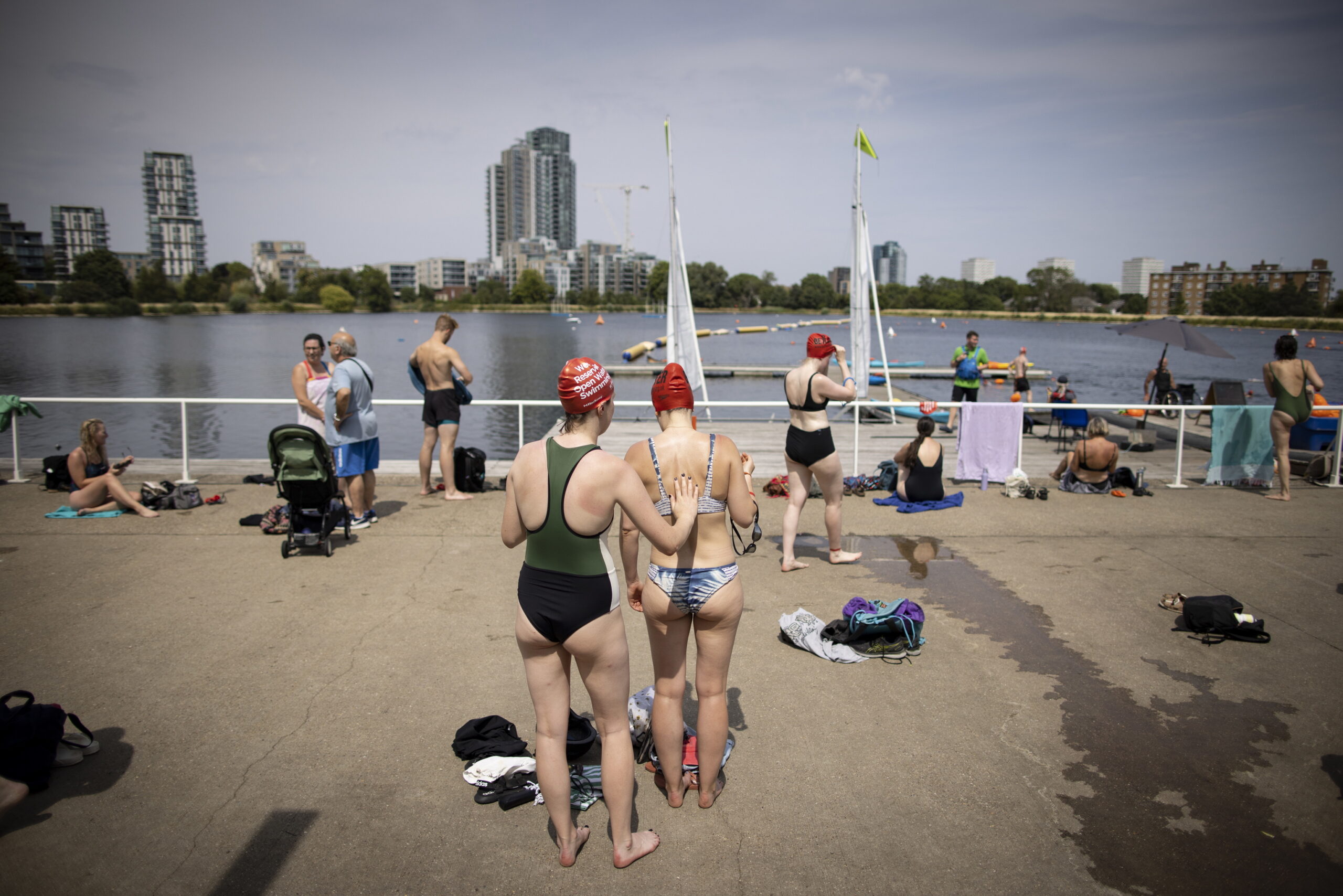Boris Johnson decided to be absent on Saturday in the “Cobra” emergency cabinet due to the heat wave and chose to stay the weekend at the Checkers residence, where his followers gave him a thanksgiving party for his three years as “premier” . Johnson’s rudeness – with the country on red alert in anticipation of temperatures above 40 degrees – was compared to his conspicuous absence from Cobra cabinet meetings in the run-up to the pandemic, in February 2020.
“People have no confidence in this Conservative ‘zombie’ government, nor in this disgraced Prime Minister who instead of responding decisively to a national emergency is preparing for more parties, while the UK begins to boil,” said Labor’s number two Angela Rayner.
On the other hand, the Climate Minister and president of Cop26 Alok Sharma has threatened to resign from his post if the candidates to succeed Boris Johnson do not commit to respecting the goal of “zero emissions” by 2050. Sharma has warned that a reverse course by the British government of the commitments promoted in Glasgow would cause “incredible damage” to the UK’s global reputation.
Sharma’s warning and Johnson’s rudeness occur in a week that has marked a historic milestone in the British Isles: a “red alert” or “national emergency” has been declared for the first time due to high temperatures. The historical maximum to date, 38.7 degrees, was registered in 2019 in Cambridge.
The chances of overcoming the symbolic barrier of 40 degrees on Monday or Tuesday and even reaching 41 in the south of England are 80%, according to the latest forecasts from the Met Office. With 50% relative humidity, common in the British Isles, the wind chill means that the impact of temperature can be up to ten degrees higher, so the risks of hyperthermia, drop in blood pressure or respiratory problems can be even older.
A first “Cobra” cabinet, in which Boris Johnson apparently did participate, analyzed the situation last Monday. Given the impact of the heat wave in southern Europe and the worsening of forecasts, a second emergency cabinet was convened over the weekend. Cobra cabinets are convened in the face of threats to national security, such as terrorist attacks, and do not necessarily require the presence of the Prime Minister, who occasionally delegates to those responsible for the Department of the Interior.
The authorities have recommended that the British not travel between Monday and Tuesday, preferably work from home and preventively close summer school activities. The National Health System (NHS) is also on high alert for the possible impact of intense heat. The fire services and civil protection have reinforced their troops in the face of the wave of fires in the forests (350 so far this year, compared to 247 last year).
To date, the biggest impact of climate change in the UK had been flooding in river and coastal areas, but extreme heat was not seen as a high risk. In fact, more than half of the eleven London Underground lines lack air conditioning.
On the eve of the heat wave, the five candidates for Boris Johnson’s succession have not passed the “zero emissions” test. The hard-line representative Kemi Badenoch has directly rejected this goal, claiming that it amounts to “economic disarmament”. Former candidate and Attorney General Suella Braverman went even further, declaring that explaining climate change to children should be considered “child abuse.” The rest of the candidates – Rishi Sunak, Liz Truss, Penny Mordaunt and Tom Tugendhadt – have given a partial commitment and with conditions. Liz Truss has promised, for example, to eliminate “green taxes” and to consider gas as a transition energy.
“It is not the green taxes that have pushed up the price of energy, but it has been the global price of gas,” Alok Sharma reminded The Observer. The Climate Minister acknowledges that all the applicants have been “lukewarm” before the goal of “zero emissions” and has acknowledged his concern about the lack of leadership on environmental issues.
Conforms to The Trust Project criteria
















